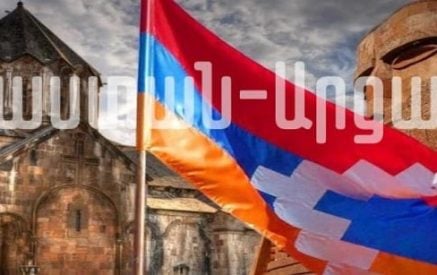By Asbed Kotchikian
Special to the The Armenian Mirror-Spectator
On October 21, an open letter addressed to Armenia’s Prime Minister Nikol Pashinyan (see below) was sent to more than 110 academics and scholars in Armenia, North and South Americas, Middle East and Europe. The main concern of this initiative was that the military solution of the Karabakh war was not in favor of Armenia, and that a diplomatic solution (even with major concessions) was better than war where the human and territorial losses would be devastating for Armenia and Artskah.
Read also
The operating logic of initiating the open letter was that if PM Pashinyan was made aware that there are those who support such diplomatic solution (even with concessions), he might view such support as a lifeline to counterbalance the “fight till the end” rhetoric that was prevalent in Armenia and the diaspora. This was based on information that in fact the PM was seriously considering such a path and that if he felt that there was at least a significant segment of Armenian scholars and intellectuals who would support a negotiated settlement, he would be in a better position to choose that route. Furthermore, the timing of the open letter coincided with as similar initiative taken by the three former presidents of Armenia who offered Pashinyan public support if he were to take the diplomatic route, thus sharing the burden of such an action.
Out of the 116 individuals who received the letter via email, only 15 endorsed it. Several individuals responded by questioning the prudence of such a move, and even the sanity and ethics of such a campaign. The overwhelming majority did not respond.
The letter was to be published on October 21 in a Yerevan-based Armenian language newspaper, but was retracted from circulation because the news from Yerevan on the same morning carried a public statement from the prime minister in which he announced that “the Karabakh issue, at least at this stage, has no diplomatic solution.”
It would be pretentious to think that had such a letter been signed by 116 scholars and academics in Armenia and the diaspora the outcome of the conflict would have been different. Nor is this failed initiative being brought up now to put forward a “we-told-you-so” argument. Rather, the initiative and the tepid response it received highlights several key points: the paucity of strategic thinking not only among political elites in the Armenian world but also among academics and scholars; the disconnect between this segment of our society and the larger issues that the Armenian nation faces; and the inability or unwillingness of academics and intellectuals to take an active, public role in shaping the future of Armenia and the diaspora.
The need to not only recognize and identify prevalent ideologies and belief systems, but to also, and subject them to serious critique is a task which is usually performed by the academic and intellectual segments of a society. We need that critical intervention now as we did before.
We lack the kind of thinking—critical, bold, and forward-looking—that was, and still is, needed to break existing stereotypes, question “undeniable truths” and speak rationally against the rhetoric of invulnerability, justice, and victimhood. We have an impressive array of academics and scholars, but few of them desire to be public intellectuals who can challenge conventional wisdom, articulate arguments that go against the mainstream mentality and groupthink, and develop concepts that are grounded in the present and future rather than enslaved to the past.
The introductory text (with some stylistic edits) is below.
We are all aware of the critical times Armenia and Artsakh are going through. What we say or don’t say today may make a difference in the policies that are being pursued for their defense and their future.

























































